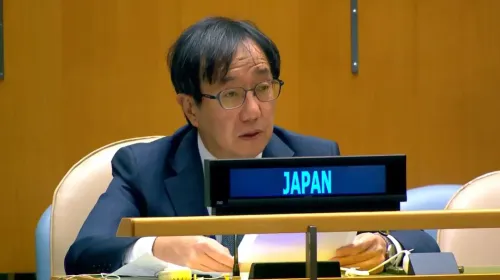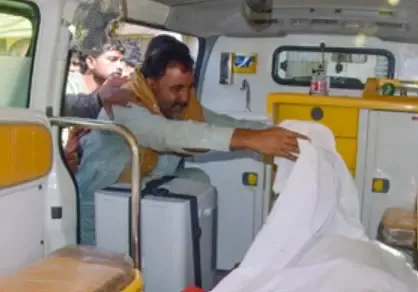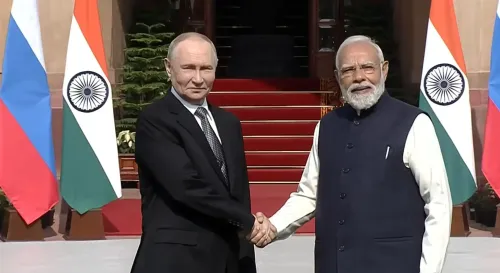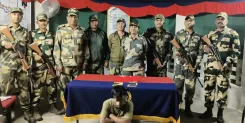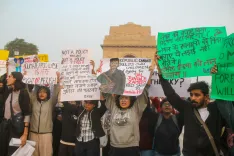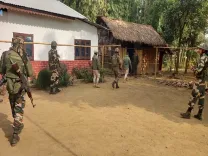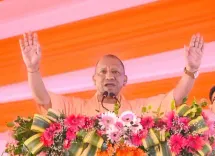What Measures Is South Korea Taking to Halt Anti-Pyongyang Leaflet Campaigns?
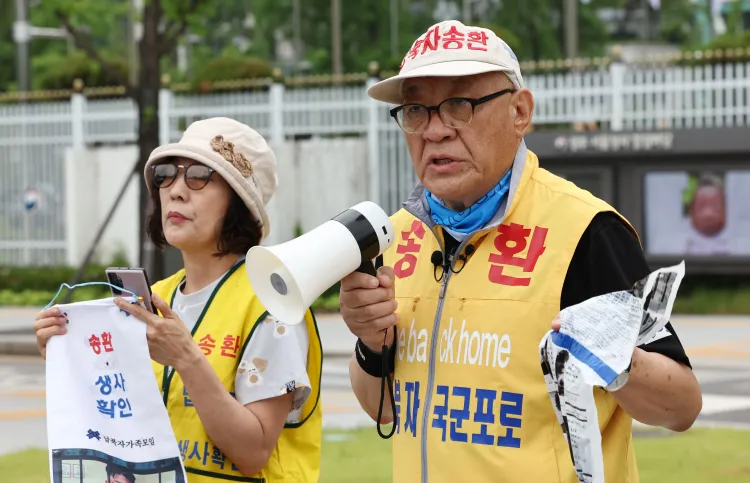
Synopsis
Key Takeaways
- South Korea's Unification Ministry is taking steps to prevent leaflet campaigns critical of North Korea.
- President Lee Jae-myung is keen on improving relations with the North.
- The Constitutional Court ruled against laws banning leaflet campaigns, citing freedom of expression.
- Concerns about national security and public dissent are at the forefront of discussions.
- North Korea's regime fears the impact of outside information on its citizens.
Seoul, June 16 (NationPress) The Unification Ministry of South Korea convened a meeting with various government agencies on Monday to devise strategies aimed at preventing activists from disseminating anti-Pyongyang leaflets across the border and to enforce penalties on individuals who violate related regulations. This initiative aligns with President Lee Jae-myung's directives.
On Saturday, President Lee mandated actions to curb the 'illegal' distribution of critical leaflets targeting North Korea and called for sanctions against transgressors as part of efforts to restore strained relations with the North.
The discussion was led by the human rights affairs chief at the Unification Ministry, with participation from officials from the Prime Minister's Office, the intelligence agency, and the interior ministry.
Earlier this month, the Unification Ministry expressed 'regret' regarding a recent leaflet distribution by a group of families whose loved ones were abducted by North Korea, and strongly urged them to cease their activities.
This marked the first instance of the ministry requesting a halt to such campaigns since the Constitutional Court ruled in September 2023 that the law prohibiting leaflet campaigns is unconstitutional, emphasizing the importance of freedom of expression.
Attendees at the meeting were expected to evaluate measures to limit leaflet campaigns and to penalize suspected offenders in accordance with applicable laws. They may also deliberate on how to address criticism suggesting that the government is overly restricting freedom of expression.
Last year, the land ministry indicated that the launch of leaflet-carrying balloons exceeding 2 kilograms could violate the Aviation Safety Act, which governs drone operations.
The Act on Disaster and Safety Management prohibits unauthorized access to areas identified as risk-prone. In the previous year, the Gyeonggi Province local government designated cities like Paju, Gimpo, and Yeoncheon County—regions near the border with North Korea—as such zones and increased police patrols.
North Korea has expressed strong opposition to the leaflet campaigns conducted by North Korean defectors and conservative activists in the South, fearing that an influx of external information could jeopardize the regime led by Kim Jong-un. Critics argue that these leaflet initiatives could escalate tensions between the Koreas and endanger residents in border regions.
Despite President Lee's firm warning, the group of abductees' families declared their intent to continue sending leaflets towards the North unless the government exhibits genuine commitment to resolving the abduction issue.
'We will cease our leaflet launches if Lee meets and comforts the mothers of the North's abduction victims and addresses the issue of confirming the fate of abductees during resumed inter-Korean talks,' the group stated.
President Lee has committed to stopping anti-North leaflet launches and military propaganda broadcasts along the border as part of his electoral promises to alleviate tensions on the Korean Peninsula and enhance relations with Pyongyang, as reported by Yonhap.
Recently, South Korea's military suspended its year-long loudspeaker broadcasts directed at North Korea, which led to North Korea also halting its broadcasts aimed at South Korea the following day.


